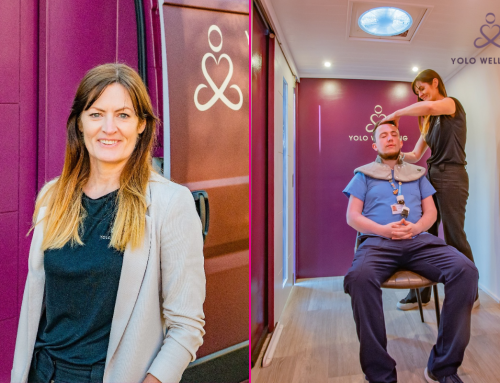Beyond the Business Card: Combining Digital with Print in 2024

Most marketers will remember a time when business cards were a non-negotiable to have on hand at events, when networking and in day-to-day life, just in case the opportunity ever arose. But is the landscape of networking changing in our post-pandemic era?
The Refined team have always used traditional printed business cards, but as we look to refresh our brand, we put our heads together to consider how to tell our story in the best way possible. This led us to start thinking about the alternatives on the market compared to the standard business card.
Traditional printed business cards
The most vital details about your business, all housed on a credit card sized piece of card that can be easily handed over to a potential client.
It’s been the language of networking since well before the days of social media and LinkedIn connection requests. Printed business cards help to promote your business and build a genuine human connection as you pass along your contact information.
Also appealing to those who may perhaps struggle to keep up with new technologies, printed business cards are accessible to a wide range of people.
Reinventing the exchange: business card alternatives
In a climate where consumers increasingly care about the sustainability and ethical credentials of companies, the potential impact of using traditional business cards on the environment needs to be considered.
Digital alternatives to the printed business card are growing in popularity, thanks in part to the lack of waste produced. Contactless, paper-less, and accessible on mobile, digital business cards appeal to the climate-conscious, and tech-savvy businessperson.
Another popular alternative to traditional business cards is a quick response (QR) code. These codes are a form of matrix barcode which stores information, usually website URLs. Having a QR code for your website to hand at events means prospects can scan the code with a smartphone camera and be taken straight to your site.
However, while digital business cards and QR codes make it easier to add someone to your network, do they make it harder to really connect with a business prospect?
Insights from Zappify
Founded in 2020, virtual business card platform Zappify is now being used in more than 40 countries across six continents, with over 250 companies employing 75,000 staff worldwide adopting the technology.
Describing their product as ‘not just a business card, but an interactive digital marketing tool’, Zappify’s appeal is multi-faceted. The obvious bonus is that it is climate conscious, but that is not all; digital alternatives to printed business cards offer instant updates to information – meaning a change in phone number does not mean wasted cards.
They noted that: ‘the ease of sharing contact information digitally has resonated well with professionals and businesses, aligning with the modern era’s demand for efficiency and sustainability,’ emphasising that the business climate has changed in recent years and continues to evolve with new technology.
Virtual business cards also offer capabilities beyond the scope of print. Users can link to social profiles, portfolios and more, providing a ‘richer and more engaging networking experience’ for both business and prospect.
We know that the answer lies somewhere in the middle ground between printed business cards and digital alternatives, so we asked Zappify about a hybrid approach to business cards. Here’s what they had to say:
‘While the traditional business card isn’t yet entirely obsolete, the rise of virtual alternatives suggests a paradigm shift. Zappify has seen companies start with a hybrid approach, providing only a select group of staff with virtual business cards to trial employee satisfaction with their use. Companies often then shift to a fully digital approach, particularly when they learn the cards can be used as an email signature, so are beneficial to even employees who aren’t customer-facing.
Although we are big advocates for the shift from print to digital, we wholly understand there are some factors that may contribute to the continued preference for traditional paper cards in the immediate short term. Business practices can vary significantly across cultures and regions; in some places, the exchange of physical business cards is deeply rooted in cultural norms and traditions, and individuals may adhere to these practices as a sign of respect.
However, from our global customer feedback, it’s clear the use of digital cards is simpler and more straight-forward, and still succeeds to provide a personal and memorable interaction that has been adopted worldwide.
Moreover, individuals who are less tech-savvy may be sceptical about digital cards. In the last few years, Zappify has seen an increase in the adoption of the digital tech from individuals regardless of their technical expertise or capabilities. This shift is attributed to the simplicity and user-friendly nature of our platforms.’
Perhaps rather directly, we followed up by asking if the business card is dead. Zappify responded with:
‘In this digital age, the traditional business card isn’t dead, but it certainly looks like it’s being administered the last rites.
There is still room to combine both traditional and virtual business cards in creative ways for effective marketing. However, digital business cards are cheaper, more effective at networking, and crucially better for the environment. As digital methods of communication evolve, there’s a growing recognition that the future lies in virtual solutions.
We are advocates that the virtual card is the here and now, and are continuously seeing a total shift of businesses removing print completely from their business cards.’
The evolution of networking
The world of marketing was completely flipped on its head when the pandemic struck, with in-person networking off the cards. Businesses felt the impact, and building back stronger has been on the agenda ever since.
Technologies are ever advancing – for example bringing networking into the metaverse – and there are increased capabilities for collaboration.
Are business cards still relevant?
As the business landscape is constantly evolving, networking is more important now than ever. With an abundance of social networks at our fingertips, fostering genuine human connection is important.
Look at your brand mission, values, and strategy – do printed business cards fit in, or are you using them because that is how your business has always supported networking? If in-person meetings and handshakes are an important part of your business development strategy, it might be that having a business card to physically hand over to a potential client is essential.
What is important to consider in the debate about the relevance of business cards is what works for your brand. Think about how you can best communicate your brand story – concisely – to those who need to hear it.
Do you need help honing your brand strategy? Get in touch with our team to see how we can help support your business.






Leave a Reply